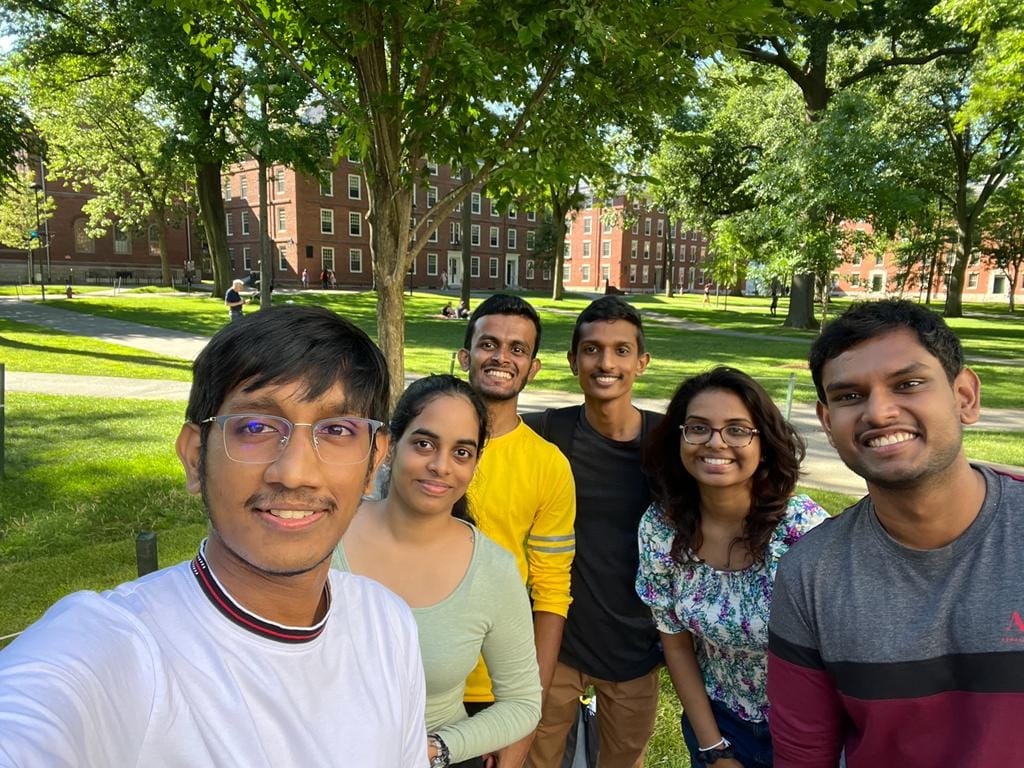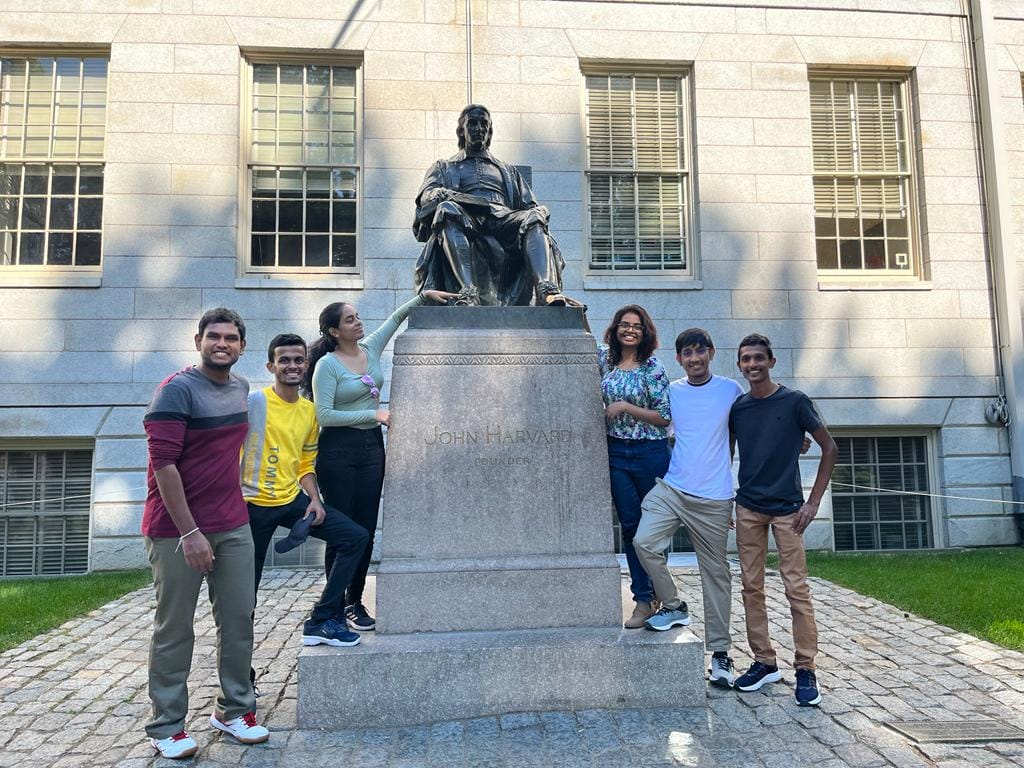Please introduce yourselves
We are 6 undergraduates (Ramith, Jathurshan, Kithmini, Mithunjha, Hasindu and Udith) from the Department of Electronic and Telecommunication Engineering and Biomedical Engineering of the 17 batch.
Tell us a bit about your new positions which you all started at Harvard?
We recently started as Post Baccalaureate Research Fellows in the Faculty of Arts and Sciences at Harvard University. Our research at Harvard will be focused on Computational Imaging and Computational Biology. Under the computational imaging aspect we’re particularly working on a new microscopy design framework named, differentiable microscopy which is a new concept introduced by the lab we’re working with, that is the Wadduwage lab. Under computational biology, we will be working on problems related to protein folding and protein design with SoLab.
Congratulations on your new roles! What made you interested in the areas you are currently pursuing ? in particular working at the intersection of biology and engineering ?
During our undergraduate years, we were fortunate to work with our faculty on various research projects that involved Bio signal processing, medical image processing, computer vision and machine learning avenues. These research problems seemed challenging. Yet it was fascinating to see, how a potential solution will benefit communities and how it will advance progress in those respective avenues.
As we progressed through our undergraduate years, with the guidance that we got from our department faculty and past graduates, we were able to publish our work in good conferences and build collaborations with researchers in various countries as well. We think today we are here because of this invaluable guidance and exposure we received from the department.
Do you think that the foundational knowledge you received from your Bachelors degree is sufficient to tackle the research problems you are currently working on?
Looking back we think we made the right choice by selecting ENTC and BME to pursue as our Major. Our department provided us with the necessary theoretical knowledge which enabled us to tackle any kind of problems in different domains.
At the time of learning we may have not realized the importance, but now we realize that the foundational knowledge we learnt is the stepping stone in solving complex problems.
Also we are fortunate that ENTC has produced good graduates over the years who are currently in top institutions all over the world who in turn help us whenever we need guidance on a particular area.
What would be your advice to young undergrads? (work in progress)
This might be subjective advice, try to find an area that seems very important to you. Something or area which the world needs, you are good at, and you love doing.
You may have lots of areas that you really love working on, and it could seem like “how can I focus on a particular area”. So during the undergrad years try to explore a lot (through competitions, both local and international, hackathons, module projects of the university, self initiated research or projects, collaborations etc). This will help you find the field/(s) that you love the most.



